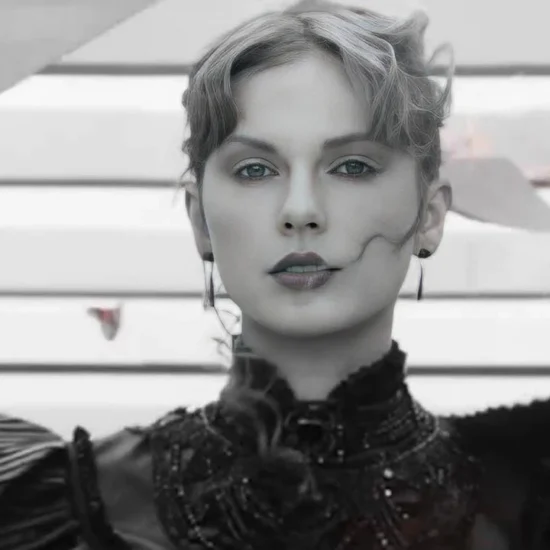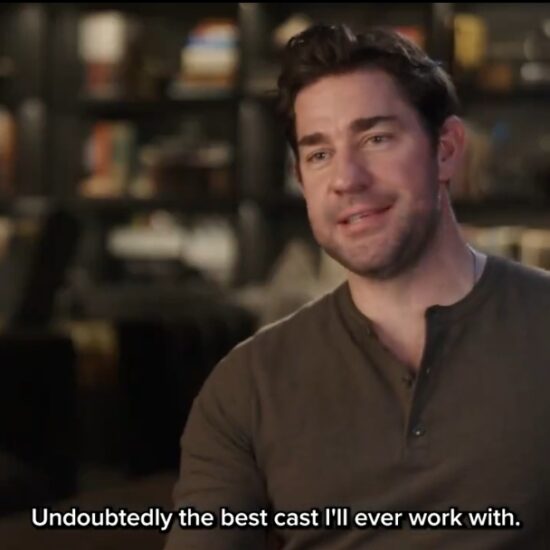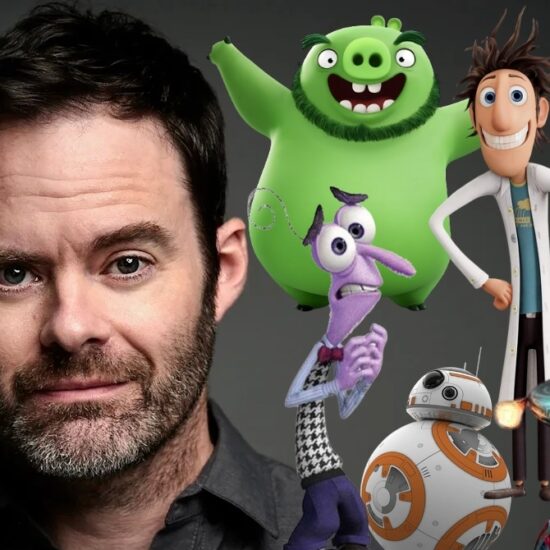
Cate Blanchett, the Santa Barbara International Film Festival’s honoree for outstanding performer of the year, sat down for a wide-ranging conversation on Friday, spanning her early acting beginnings to her current eighth Oscar nomination for her starring role in Tár.
In front of a sold-out crowd at Santa Barbara’s Arlington Theatre, Blanchett looked back at some of her standout roles from the last 25 years with The Hollywood Reporter’s Scott Feinberg, who served as moderator. Of 2006’s Notes on a Scandal, for which she received one of her Oscar noms, the star shared fond memories of working with co-star Judi Dench, recalling in the film (where Dench’s character is obsessed with hers), “We have a violent episode where Judi was actually looking like a Ninja Turtle — she had to have this back brace on because I had to slam Judi Dench into a dresser. And I said to Richard Eyre, the director, I said, ‘I can do a lot of things but I can’t slam Judi Dench,’ and she said, ‘Don’t worry, darling, just go for it!’”
After the watching the clip with the crowd, where she does indeed slam Dench, Blanchett joked defensively, “She’s being really mean to my character, just so you know.” She also reflected on both 1998’s Elizabeth and 2007’s Elizabeth: The Golden Age, and how director Shekhar Kapur has expressed interest in a third film.
“He told me about this really interesting — well, who knows if they’re facts or not — that Queen Elizabeth, before she died, was standing in front of a window for 16 hours and no one knew what she was looking at and then she eventually laid down. He’s interested in those 16 hours,” Blanchett said. She then deadpanned, “It’s a very long film, very still, a lot of voiceover,” and sarcastically teased its major box office potential.
2015’s Carol was another point of conversation, as the actress noted how an interviewer recently told her she seemed to be “forging a line in predatory lesbians” after her roles in both Tár and Carol, the latter of which she shot down as “such a reductive way to look at that story and that beautiful, beautiful film.” Blanchett also commented on Carol’s open-ended conclusion, which she called “a lesson in ambiguity”: “We knew it had to be incredibly full of possibility, and I think there had been a scene after that that would be more descriptive about what happened next, but I think it meant that the road wasn’t going to be easy but it was open.”
When asked about her shifts in between theater and film, and preserving one on screen while the other is just for a singular crowd every night, Blanchett admitted, “I don’t think a lot about legacy. I think, those of you who have seen or might see Tár, the character is very obsessed with legacy, and I think it’s a way of side-stepping the experience of living your life, and so I don’t think about those things.”
Speaking of Tár, in which she plays Lydia Tár, a renowned conductor who is accused of sexual abuse, Blanchett called it “an utterly once-in-a-lifetime experience,” partly because of the reaction it’s gotten. For example, she said, “I was working with Alfonso Cuarón in London last year and he’d seen Tár and he said, ‘I’ve seen it three times: I saw it once and I just was blown away; the second time, I was envious, and the third time I went, how the fuck did [director Todd Field] do that?’”
Blanchett learned to play piano, speak German, conduct and have correct stick technique throughout the process, and “thought a lot about her turning 50, her summiting her career as an artist and realizing that once you reach a peak creatively, that you can’t stay up there forever. If you’re going to keep evolving as an artist, you have to have failure, and so she self-immolates in a profound way, and in a way starts again with a different access point to the music itself,” she said of the film’s ending. The star also commented on the decision to have a lesbian woman at the center of a story about abuse.
“If that had been a man atop the podium, I think that’s something we would have understood; we see [that] day in and day out, and we would have had a particular relationship, perhaps a safer relationship, to the examination of power that is one element of the film,” Blanchett told the crowd. “The fascinating thing about the response that the film has had that exceeded our wildest dreams is that people have been talking about it. I don’t think there’s any right or wrong way to view the film.”
Field then appeared on stage to present her with her honor, saying, “While Cate Blanchett is many things, with accomplishments that would make Lydia Tár pale by comparison, as a practical matter let’s explore just four of those things — activist, humanitarian, working mother and the best dressed woman in the world.”
In her speech, Blanchett said the award would be “an honor in any year, but this year in particular when there have been so many outstanding idiosyncratic performances, memorable performances by women of wildly different shapes and sizes and artistic ambition.”
The star dedicated the prize to Field and their team, noting, “Tár consumed me whole and spat me out and I’m not quite sure of where I am. It shifted my sense of what is possible.”
“I think that’s the thing about being terrified — in a safe environment, of course — being creatively terrified, creatively confronted, it can go one of two ways,” she continued. “You can get defensive or you can run towards the opportunity that presents to you, and I think if you do that, whether it succeeds or whether it fails, you’ll be changed by it. So thank you, Todd, for profoundly changing me in ways that I have yet to understand.”













